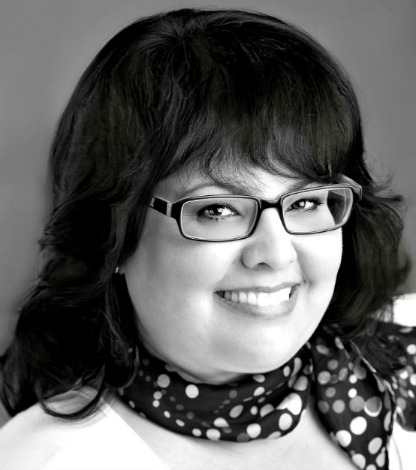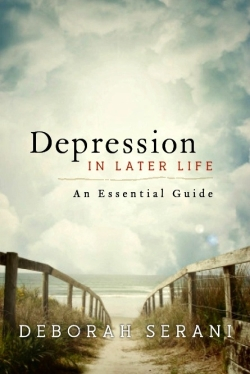It looks like you've stumbled upon a page meant to be read by our code instead of viewed directly. You're probably looking for this page.
Not 'Just Old Age,' It Could Be Depression; INDIES Winner Addresses Silent Sufferers
Deborah Serani has been treated for depression, and as a psychologist has helped many people through this debilitating condition.

But those in later life may also suffer from depression, yet they and their loved ones simply chalk up their symptoms to “old age.” That’s why Serani decided to address this issue in her latest book, Depression in Later Life: An Essential Guide (Rowman & Littlefield Publishers) The book earned Serani a glowing review last summer in Foreword Reviews and a Gold medal in psychology last month in our INDIES Book of the Year Awards. As part of our special focus on INDIES winners this month, I interviewed Serani to learn more about this largely overlooked condition.
What prompted you to write about specifically about depression in later life?

Deborah Serani: 'Many seniors don't even know they're struggling with a treatable mental illness.'
Geriatric depression is on the rise—and with many unaware of the symptoms of depression in later life, this age population is at great risk. I’ve always wanted to write books that covered depression at different age levels, so that’s why I chose later life as my third book’s content.
Are you seeing it more in your practice?
Yes, over the last few years, many seniors have flooded my practice with depressive symptoms. The good news is that evidenced-based short-term treatments enabled all of these patients reduce depressive symptoms and find greater wellbeing in their golden years. It’s important for readers to know depression is a serious, but treatable disorder. The key is early detection.
How does depression among older people differ from the young in both cause and symptoms?
Geriatric depression is vastly different than depression in younger adults. Depression in seniors is linked to greater vascular and environmental origins, whereas early onset depression typically involves genetics and social learned behaviors.
Research reports that seniors don’t experience depression in the same ways as children and adults—often reporting more physical (headaches, backaches, fatigue) and cognitive difficulties (forgetfulness, poor reasoning, slowed thinking) than kinds of sadness or despair younger people report. As a result, older adults think their memories may be failing or the reason they have aches, pains and irritability is due to “old age.”
The bottom line here is that many seniors don’t even know they’re struggling with a treatable mental illness.
What is the biggest myth about late-life depression?
Many people believe depression is a normal part of aging. In fact, it is not. Depression at any age is not part of the life cycle.
Are there special challenges in treating depression among the elderly, such as willingness to enter therapy or ability to take medication?
It’s important to remember the senior population grew up in a time that greatly stigmatized mental illness. Much wasn’t known about neurobiology, neurochemistry and brain research was in its infancy.
While some seniors resist acknowledging they have depression or dig their heels in about seeking treatment, others readily want to feel better and are willing to work with a mental health specialist. The goal about working with geriatric depression is to help resistant older adults understand how the illness of depression works—and what treatments are out there to help reduce symptoms.
Tell us about your background and why you entered this field.
I struggled with depression as a child—and after finding psychotherapy a lifesaving experience, I decided to study to become a psychologist. My perspective of knowing depression personally, as well as understanding it professionally, makes my writing as an author most unique.

Howard Lovy is executive editor at Foreword Reviews. You can follow him on Twitter @Howard_Lovy
Howard Lovy